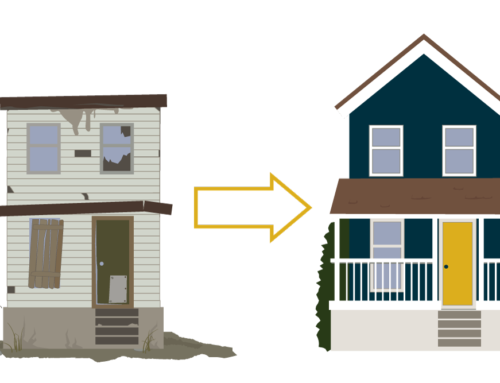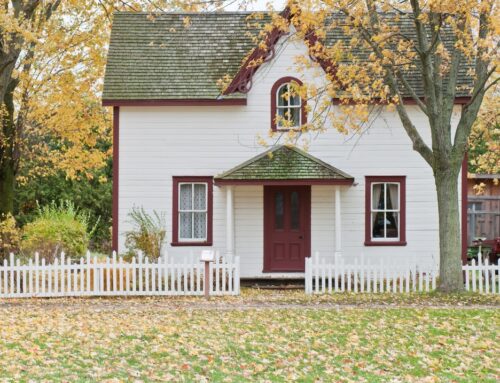Whether you’re looking for the tax benefits, year-round rental income, or you want to get in on flipping houses, real estate will always be a smart place to put your money.
If you’ve never invested in real estate, other than the home you live in, you’ll need to know how to finance a house flip.
Read our guide on financing for flipping houses before you start looking for that perfect investment property. Taking a few minutes to learn a few of the steps can save you time and money when you’re ready to buy your first property.
How Much Do You Need for a Flip?
You’ll find plenty of books and programs that claim to hold the secrets to flipping houses. What you won’t find is a magic formula to calculate the amount of funding you need for your fix-and-flip investments.
Funding needs for a flip may run several hundred thousand dollars. It’s also possible to flip a house with next to nothing as far as upfront money. No two flips are identical, which means the cost variables can change from one project to another.
That said, you’ll still need to learn the vital skill of estimating. To estimate as accurately as possible, you should budget for common expenses associated with flipping houses, including:
- Purchase Price
- Taxes
- Rehab and Renovations
In addition to these costs, you’ll have a myriad of expenses that aren’t always predictable. For example, while you own the property, you’ll cover utilities, insurance, and HOA fees (if applicable). If you sell the house without a real estate agent, you’ll also pay for marketing costs.
Taking time to create a well-thought-out budget before you start each project is critical to your success as an investor.
Types of Loans for Flipping Houses
If you financed the home you live in, you might remember shopping for the loan. When you buy a home using traditional financing, your options are usually limited to either a conventional mortgage or one insured by the government.
While some investors do opt to fund their projects through traditional lenders, there are plenty of alternatives.
Private lenders offer an excellent solution for financing a real estate investment. These lenders specialize in funding non-traditional investments like fix and flip loans.
Fix and flip loans differ from loan products available through banks or mortgage lenders. Time is one significant difference. You’ll usually have quicker access to funds, and the terms for the loan will be shorter.
You might also consider using one or more private investors, which we’ll talk about later. For now, let’s take a minute and discuss traditional financing.
Why Banks May Not Be Your Best Funding Solution
Borrowing money from a bank or mortgage lender may get you some of the lowest interest rates, it’s not usually a practical option for the first-time investor.
The application process typically takes between 45 and 90 days. If the bank finds anything questionable on your application, it could take the full three months. For the motivated investor who wants to get started as soon as possible, the slow speed of traditional financing will be a challenge.
Banks also put a lot of weight on your ability to repay the loan. They evaluate their decision on multiple factors, including your debt-to-income ratio and credit score.
Mortgage lenders don’t always like to work with what they consider problem properties. Even though you, as an investor, look for properties in need of repair, lenders prefer financing move-in ready properties.
Creative Funding for Flipping Houses
Before we discuss the benefits of non-traditional financing, there are a few creative solutions some investors use to fund their projects.
Many seasoned house flippers have strong relationships within the local real estate investing community. It takes time, but as you meet and get to know other investors, you may get leads for financing and some great advice on investing in flips. You’ll also prove your commitment to running successful projects, making you more attractive to private lenders and investment groups.
If you have equity in your primary residence, consider one of the following financing strategies:
- Home Equity Line of Credit (HELOC)
- Cash-Out Refinance
If you have friends or relatives with money to invest, consider asking them to help fund your flip. You would need to put together a strong presentation. With the right mix of people and your ability to promote your project, this could be a great way to start.
For most investors, the wiser route is the one that gets you the money quickly and with minimal fuss.
How to Finance a House Flip Through Private Lenders
Earlier, we mentioned private lenders as a way to secure financing for flipping houses. Private money lenders are non-institutional companies that loan money for non-traditional real estate transactions.
When you work with one of these lenders, you’ll notice several differences from what you would experience working with a bank or mortgage company.
Private money lenders can often get you your funds faster. In some cases, you could have your money within a week. As an investor, a quick closing can put you at an advantage over other buyers.
While they look at credit and income, private lenders focus more on the value of the property you’re buying. They evaluate how fast they could sell the house if they needed to recover their investment.
A private lender looks at the after repair value (ARV). ARV helps an investor determine the profit margin on a flip. They’ll base your funding on your project’s ARV.
Once an investor completes a few projects successfully, some private lenders may loan 100% of the funding. This opens up your ability to work on more than one flip at the same time.
Ready to Invest in Your First Flip?
Now that you’ve studied how to how to finance a house flip, it’s time to look for a few sweet investment properties. Once you find a lucrative deal, you’re ready to talk to lenders.
Our team specializes in helping real estate investors secure funding. We offer several types of financing, including fix and flip loans. If you’re ready to invest in your first flip, contact our team today. Let’s work together to get your investment off to a good start.






Stay In Touch